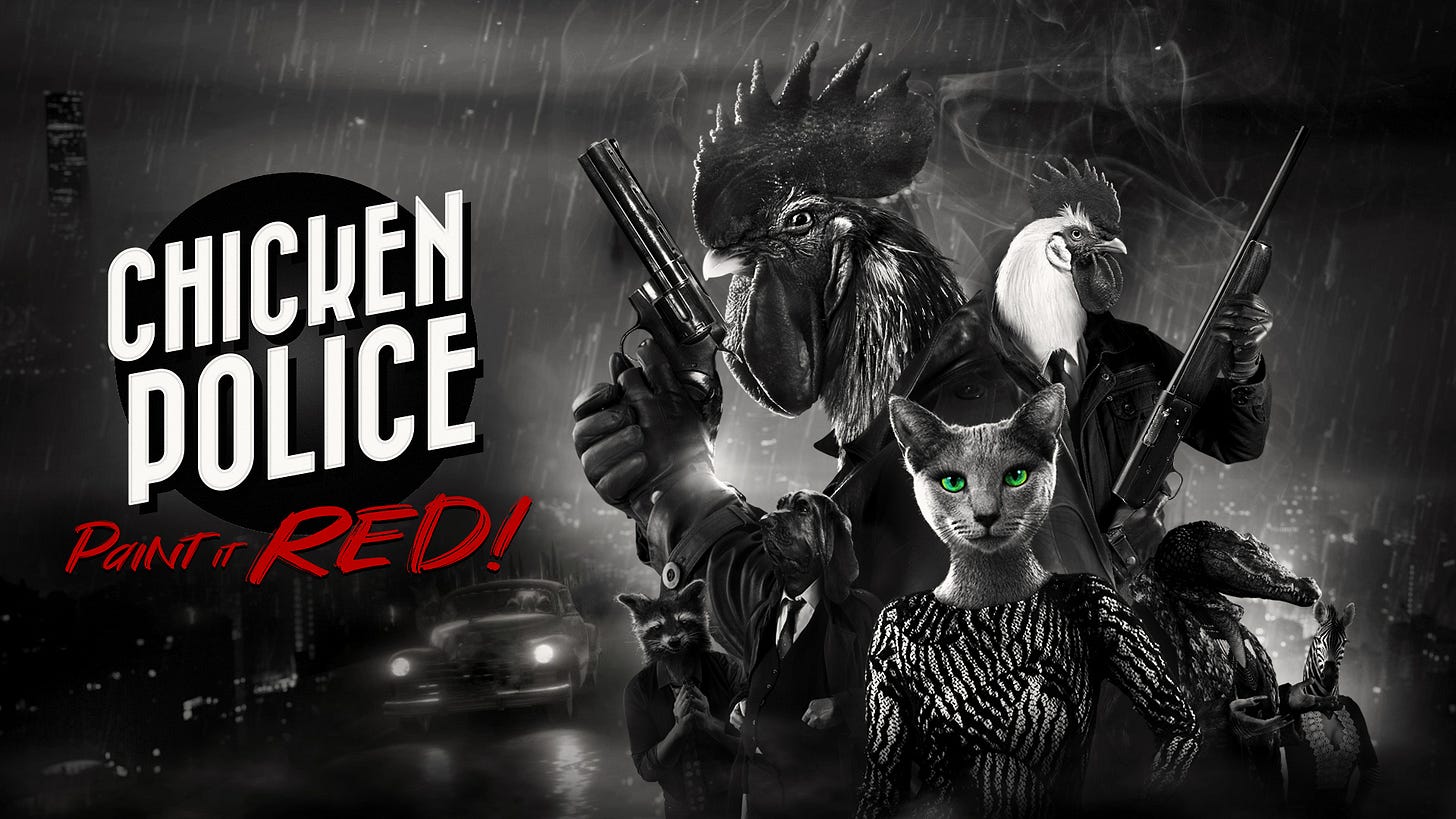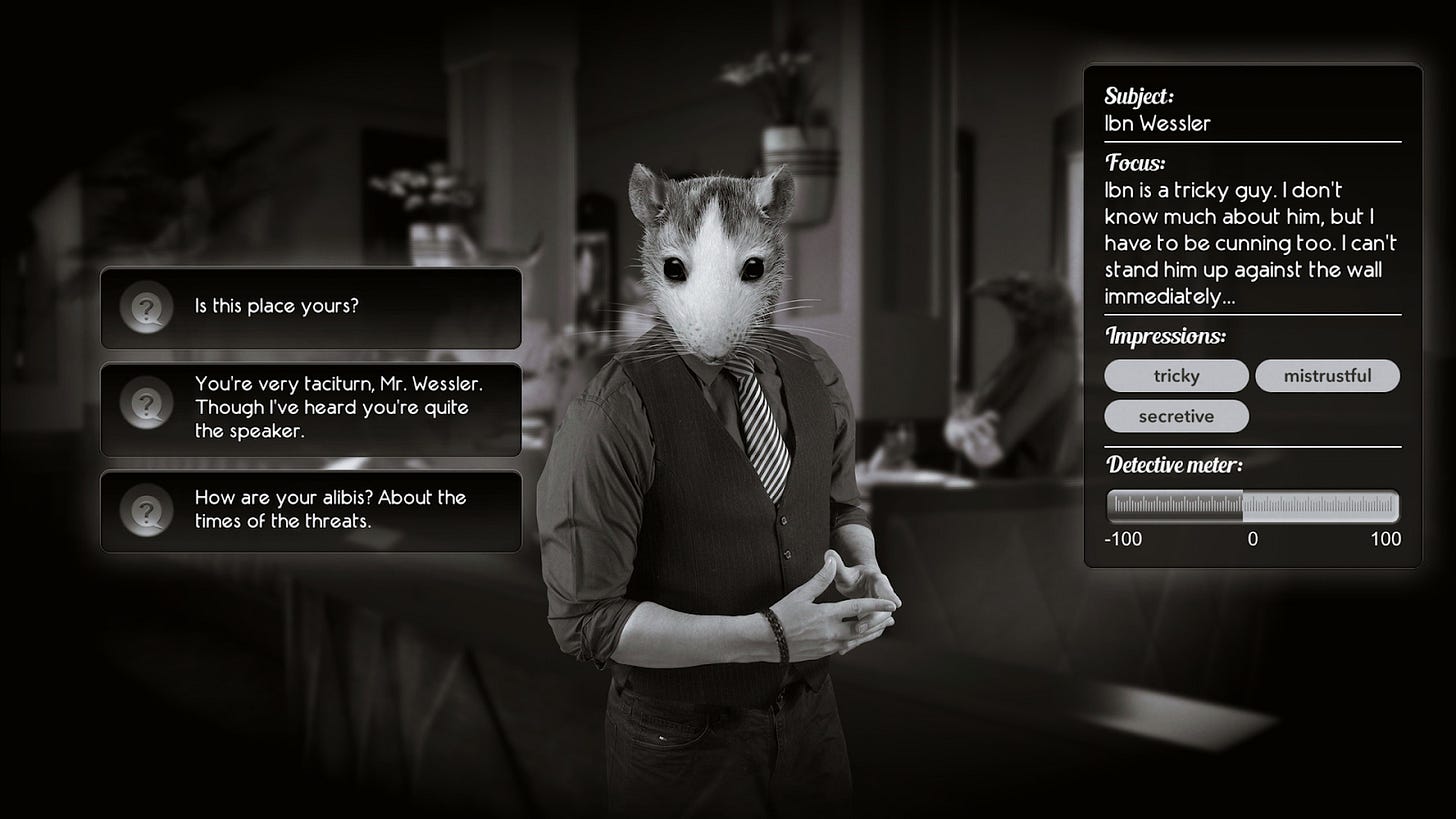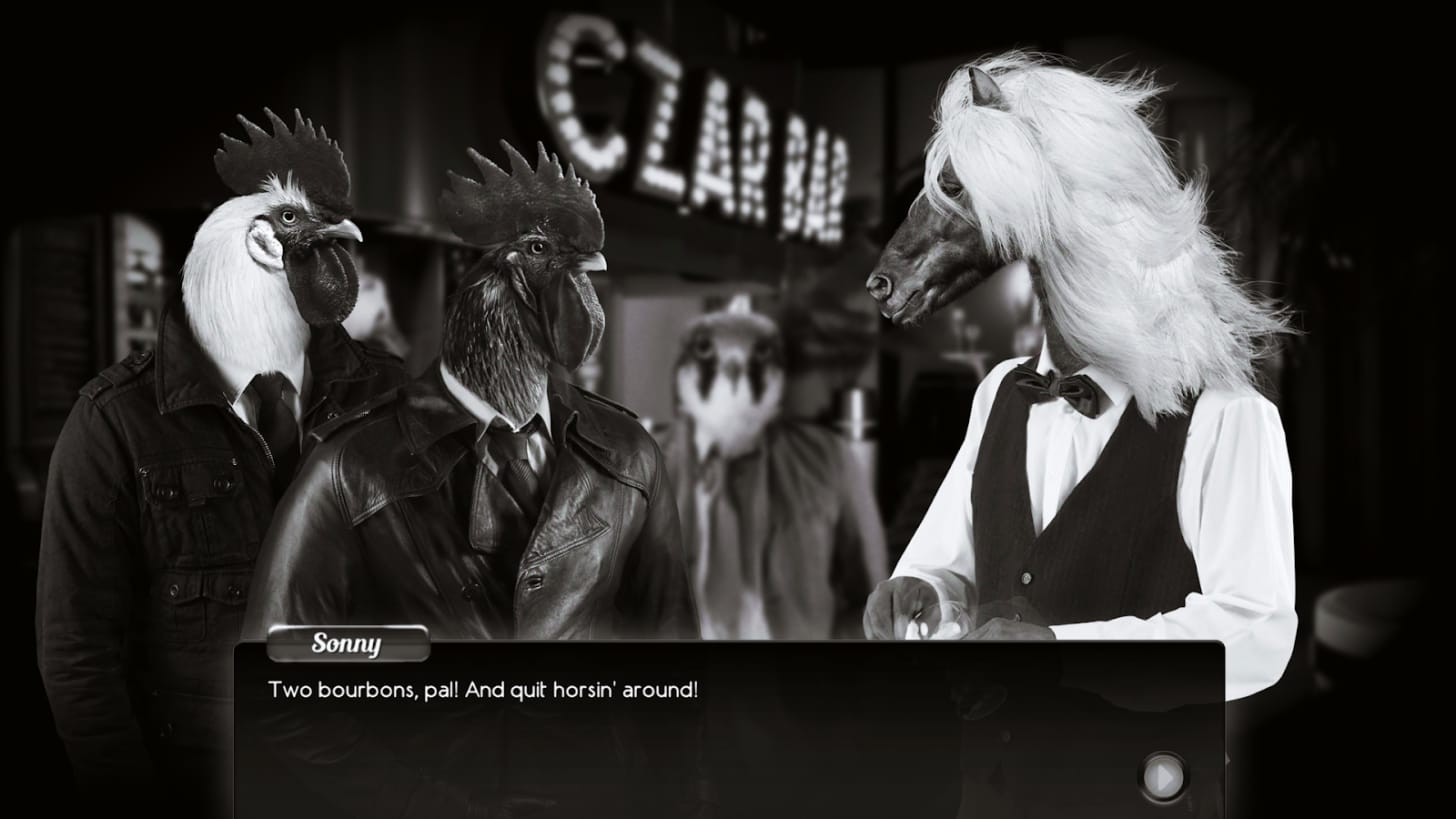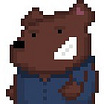Chicken Police Is My New Favorite Epic Fantasy Series
Always on the hunt for a new detective game, Boofybaps investigates Chicken Police, a point-and-click adventure where film noir meets Zootopia.
Written by Boofybaps (@boofybaps)
I have been on the hunt for great detective games for a few months now. I’ve been searching for experiences that challenge me to deduce and reason through a complicated case so I can solve it and feel like a very clever guy. Chicken Police: Paint it Red by developers The Wild Gentlemen did not do that for me, but it managed to excite me in ways I was not expecting.
Not a Great Detective Game
In Chicken Police, you play as Sonny Featherland, the most cliche drunk retired detective the city of Clawville’s ever seen. A Femme Fatale, the girlfriend of the city’s most powerful gangster, asks Sonny to help her uncover who has been sending her threats and making her fear for her life. Sonny must reconnect with his old partner, a large gun-toting goof named Marty MacChicken, and solve the case off the books and under the nose of the cantankerous Chief Bloodboyle. The plot is as boilerplate as it gets, but there is a reason for that I will get into shortly.
The game was also disappointingly simplistic on the detective game side. It was much more of a visual novel than anything else. It hardly even counts as a point-and-click adventure game with only a handful of simplistic puzzles. The interrogation segments are also laughably easy. In fact, failing them is a far more challenging endeavor than succeeding. Everything plays out in strictly linear order, and all side content is completely optional, which hardly affects the main story at all.
Yet, I’m walking away from Chicken Police with an enthusiastic recommendation. I implore you to play it, but don’t approach it like I did. Go play this humorous visual novel and check every dialog choice, clickable item, and optional location. By searching the folds and cracks of the fabric of this seemingly innocuous game, you will find evidence of something more valuable than I would have expected. It failed to satisfy my detective game urges but instead titillated my interest as a fan of Fantasy novels.
The Hidden Depth of Clawville
As you begin your investigation by talking to various quirky characters, Chicken Police reveals a depth that is utterly absent in the marketing. The status of animals’ natural food chain hierarchy reflects real-world socioeconomic issues. Imagine a more gritty Zootopia or a less horny Beastars. The Wild Gentlemen wrote an entirely original world, what they’ve called “The Wilderness,” with much more detail and care than l expected. We only skate around the surface of profound lore, using this single murder mystery to drip-feed stories of The Wilderness’s complex and bloody history.
The game is set in Clawville, an urban city that houses many rich and powerful individuals. While trying to guess if Clawville is meant to represent Chicago or Los Angeles, the player is hit with the information that Clawville is a nation-state that, instead of a mayor, is ruled by a king. Also, it’s well known among the citizens that the King is merely a puppet controlled by an opaque Council of Twelve. The city was founded by a union of nations, each consisting of different species. Some of them, like insects and lizards, have a low socioeconomic status within a city that reflects the political contentions brewing between the species’ nations of origin. Clawville is a failed attempt at unity that became a stark representative of the entire planet’s inequality and violence.
Instead of setting the game in New Bark or Chicagopher, they made a new universe that necessitated more depth than the actual plot warranted. Using America in the 1940s as the setting of a comedy game about animal people would have sufficed, but The Wild Gentlemen were interested in doing more with their world. This effort may have been useless if it was a one-off game, but it’s not. The Wild Gentlemen have already released two games: Chicken Police: Paint It Red and Zipp’s Cafe, a coffee and conversation visual novel that exists solely to flesh out the lore. Two games are coming soon: Chicken Police: Into the Hive and Moses & Plato - Last Train to Clawville, a spinoff about investigating the murder of an ambassador on a peace mission. The Wild Gentlemen fully intend to flesh out and develop this world even further.
An Exciting Future
The upcoming sequel, Chicken Police: Into the Hive, explores the racial ghettos in the city, which are comprised of insects that are only mentioned as a background detail in the first game. Casual racism between the animals is prominent, but the insects are literally walled off into their own section of the city. Sonny mentions needing paperwork to enter the sector, showing that it’s not simply a social isolation but a legal one as well. From the trailer, insects seem not to be the bloodthirsty monsters they were said to be by the characters in Paint it Red. This new installment will have to ruminate deep racial inequality and likely the way it reflects the international politics of The Wilderness.
A few hints, such as an image of a spinning globe of unique continents and a shot of our heroes driving out of the city, show that the setting will expand. We may visit these other nations, which will likely have their own issues, wants, drives, and contentions. If my calculations are correct, our heroes will become entrenched in the political games happening between various nations. They may not overwhelm the plot but will hopefully play a role in guiding the future of the franchise. The twists and shocks in the story of Paint it Red showed they have an eye for surprises, and I’m excited about what they have in store.
I’m a big fan of The Dresden Files books, a series about a detective/wizard solving cases against mythical, supernatural, and eldritch forces in modern-day Chicago. What got me to continue reading this series, consisting of 17 novels at the time of writing, is the amount of lore drip-fed to the player. Book by book, the worldbuilding becomes more relevant and important until a simple fantasy detective series morphs into epic fantasy so subtly that the reader hardly notices. This is my favorite way to approach long-form storytelling, and I hope this happens in Chicken Police.
Will Chicken Police become as massive and deep as my favorite epic fantasy series? Only time will tell. The execution of the writing is what matters most, and the first entry slips its depth under the radar. Few discussions of this game reference the worldbuilding on display and have comfortably written it off as a comedy goof with Photoshop furry art. Well, I’m calling it right now: Chicken Police has the potential to develop into a series with a massive fanbase that sings praises about its worldbuilding. That’s right: A new annoying fanbase is just around the corner.









